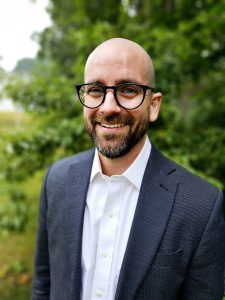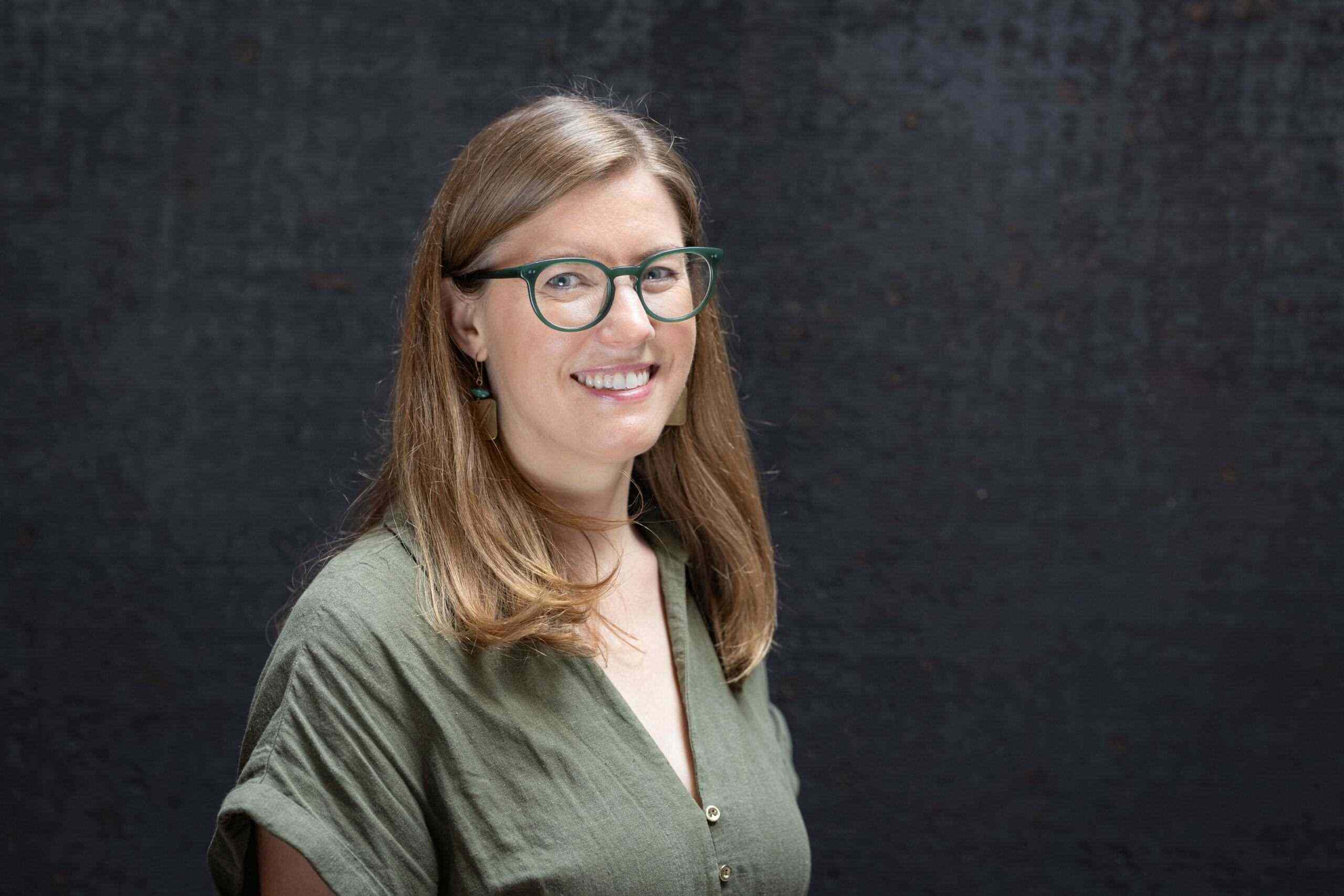For general questions about the German program, please contact german@kzoo.edu or Dr. Kathryn Sederberg, Chair of German Studies.

Michael Powers
Assistant Professor of German Studies
Ph.D., Brown University
M.A., Brown University
B.A. New College of Florida
Prof. Powers specializes in eighteenth- to twentieth-century German literature and philosophy, with emphases in critical theory, media studies, and the environmental humanities. He has published on topics ranging from Goethe’s scientific studies of perception and color, Hermynia Zur Mühlen’s socialist fairy tales and anthropocentrism, to the competing notions of “free play” in the pedagogical, psychoanalytic, and political writings of Jean Paul, Freud, and Walter Benjamin. At Kalamazoo, he enjoys teaching courses that enable students to explore different areas of German-speaking culture and thought, from art, literature, and film, to philosophy, political theory, and environmental studies.
Email:
Office:
Dewing 212E
Courses
First Year Seminar: The Art of Play
Sophomore Seminar: Marx and the Arts
German 101: Beginning German I
German 102: Beginning German II
German 201: Intermediate German I
German 203: Was ist Deutsch?
German 200: German Film
German 301: German Legends and Tales (Intro to German Cultural Studies)
German 420: Intro to German Cinema
German 430/490: Green Germany: Past, Present, Future
Publications
“Against the Law: Youth and the Critical Pedagogy of Eternal Rebellion.” In Forces of Education: Walter Benjamin and the Politics of Pedagogy, edited by Dennis Johannssen and Dominik Zechner, 177-189. New York: Bloomsbury Publishing, 2022.
“The Red Fairy Tale and Non-Anthropocentric Solidarity: Hermynia Zur Mühlen, Ernst Bloch, and Siegfried Kracauer.” The German Quarterly 94, no. 2 (2021): 208-218.
“Between Speaking and Listening: Jean Paul’s Word-Play,” in Play in the Age of Goethe: Theories, Narratives, and Practices of Play around 1800. Series: New Studies in the Age of Goethe. Eds. Edgar Landgraf and Elliott Schreiber. Lewisburg: Bucknell UP, 2020.
“Atmospheric Color and the Phenomenological Gaze: Goethe and Merleau-Ponty,” Pacific Coast Philology 54.2, Special Issue: “Ways of Seeing: Visuality, Visibility, and Vision.” (Nov. 2019): 298-321.
“The Smallest Remainder: Benjamin and Freud on Play,” MLN 133.3 (April 2018): 720-742.
“Wolkenwandelbarkeit: Benjamin, Stieglitz and the Medium of Photography,” The German Quarterly 83.3 (Summer 2015): 271-290.

Kathryn Sederberg
Lucinda Hinsdale Stone Associate Professor of German Studies
Chair, German Studies Department
Ph.D., University of Michigan
B.A., St. Olaf College
Prof. Sederberg’s main research areas include twentieth-century German literature and culture, autobiographical writing, war and gender, and National Socialism and its legacies. She is also active in the field of language pedagogy and has published on content-based language instruction, teaching with museums, and curriculum development with a literacies approach. For excellence in teaching German, she was the recipient of a 2022 Certificate of Merit from the Goethe-Institut and the American Association of Teachers of German.
She is currently working on a book project about the diaries written by German and Austrian Jewish refugees fleeing Nazism in the 1930s and 40s. Her research has been supported by the Botstiber Institute for Austrian-American Studies, the Center for Holocaust Studies at the Leibniz Institute for Contemporary History in Munich, the Research Centre for German & Austrian Exile Studies at the Institute of Languages, Cultures and Societies, University of London, and the American Philosophical Society. In summer 2024 she was the Kurt and Thea Sonnenmark Memorial Visiting Fellow at the Jack, Joseph and Morton Mandel Center for Advanced Holocaust Studies, United States Holocaust Memorial Museum.
Email:
Office:
Dewing 212G
Courses
First Year Seminar – Memories, Secrets, and Lies: Writing the Self
German 101 – Beginning German I: The Personal World
German 102 – Beginning German II: The German-Speaking World
German 201 – Intermediate German: Multicultural Germany
German 203 – Advanced German I: What is German?
German 204 – Advanced German II: Babylon Berlin: War, Society, Culture 1914-1933
German 301 – Advanced Intermediate German: Coming-of-Age in Germany
German 435 – Minority Cultures in Germany
German 440 – German Diary Cultures: Adventure, Intimacy, Scandal
German 470 – Contemporary German Culture (various topics)
German 490 – Testimony and Memory: The Holocaust in Literature and Film (Senior Seminar)
Sophomore Seminar 295: Bearing Witness: Holocaust Literature and Testimony
Publications
“Refugee Romances: Solidarity, Love, and Care in the Exile Novels of Adrienne Thomas,” forthcoming in Feminist German Studies, 40(2), 2024.
“Fleeing Nazi Persecution: Jewish Refugee Child Diarists as Family Chroniclers,” International Research in Children’s Literature 17(3), 2024, 335–349.
“Coming-of-age in exile: the refugee diaries of Thea Gersten and Erika Löbl, 1937–47,” Holocaust Studies: A Journal of Culture and History 30(2), 2023, 346-367.
“Social Justice Texts in the Beginning Language Classroom: Teaching a Refugee Story.” Co-authored with Magdalena Tarnawska-Senel. In Social Justice Pedagogies, edited by Katrina Sark. University of Toronto Press, 2023, 166-178.
“Teaching Babylon Berlin: Language and Culture Through a Hit TV Series,” Die Unterrichtspraxis/ Teaching German 54(2), 2021, 200-216.
“Journaling Displacement. Jewish Refugee Accounts 1933-1945” in Revue belge de philologie et d’histoire /Belgisch tijdschrift voor filologie en geschiedenis 98, (2020): 593-614.
“‘Confrontation with My Complicity’: Paratextual Self-Encounters in Diaries of the Second World War,” in Contested Selves: Life Writing and German Culture. Edited by Katja Herges and Elisabeth Krimmer, 147-166. Camden House, 2021.
“Reconstructing the Self and the City: Wolfgang Koeppen’s Rubble Film Bei Betty (1946–1948)”. The German Quarterly, 93(1), Winter 2020, 37-55.
“Writing Through Crisis: Time, History, Futurity in German Diaries of the Second World War.” Biography, 40(2), Spring 2017, 323-341.
“The First World War in the Literacy-Focused Classroom: Teaching German through Cultural Themes.” Co-authored with Jennifer Redmann. Die Unterrichtspraxis/ Teaching German, 50(1), Spring 2017, 45-66.
“‘Als wäre es ein Brief an dich’: Das Brieftagebuch, 1943-1946.” In: Selbstreflexionen und Weltdeutungen: Tagebücher in der Geschichte und der Geschichtsschreibung des 20. Jahrhunderts. Rüdiger Graf and Janosch Steuwer, editors. Göttingen: Wallstein Verlag, 2015.
“Deutschland als Schiffbruch: Der ‘Robinson’-Topos in deutschen Tagebüchern, 1943-1946.” Studia Germanica Posnaniensia XXXIV (2013), 41-55. Special issue: “Narrationen der Übergänge: Geschichten von Ende und Anfang in der deutschsprachigen Literatur vom Ende des 19. bis zum Anfang des 21. Jahrhunderts.”
“Bringing the Museum into the Classroom, and the Class into the Museum: An Approach for Content-Based Instruction.” Die Unterrichtspraxis/Teaching German 46(2), Fall 2013, 251-262.
Emily Fink-Craig
Office Coordinator, Languages
Emeriti Faculty
Hardy O. Fuchs

Professor of German, Emeritus; B.A. Kalamazoo College, University of Bonn; M.A. Indiana University; Ph.D. Michigan State University
Joe K. Fugate

Professor of German and Director of Foreign Study, Emeritus; B.A. Southern Illinois University; M.A., Ph.D. Princeton University
Margo R. Light

Professor of German, Emerita; B.A. Hope College; M.A. Indiana University; Ph.D. University of Michigan
